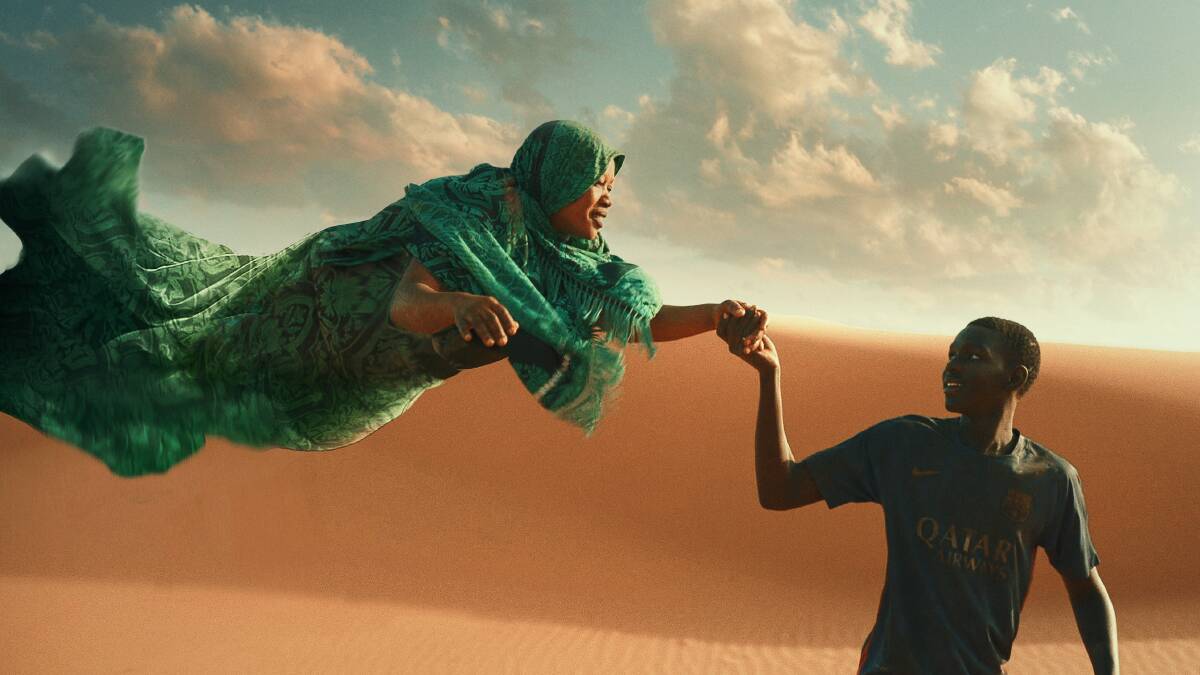Io Capitano.
MA 15+. 122 minutes.
Four stars.
This story out of Africa is drawn from first-person accounts by survivors of the harrowing overland journey across the continent to Europe. If people managed to reach the port of Tripoli in Libya, one more leg remained - a boat trip across the Mediterranean under perilously dangerous conditions to the coast of Italy. Many, as we've seen in tragic media images, never make it.
Matteo Garrone directs Io Capitano, which translates into Italian as "I (am) the captain". We know from his previous films like Gomorrah and Dogman that he is not one to shy away from tough subjects. In the interests of authenticity, he and his co-writers, Massimo Gaudioso and Massimo Ceccherini, interviewed extensively. Contributions were also made during the shoot from the former refugees and asylum seekers who had been hired as extras.
As a result of all this distilled experience, Garrone's fiction feature about two teenagers who set out from Senegal to fulfil their dream, is powerful and confronting. Their odyssey pitches them into a struggle to survive, long before they are shuffled into boats that are barely seaworthy and dispatched across the sea.
Io Capitano begins in Dakar, at home with Seydou (Seydou Sarr, a first-time actor). The 16-year-old and his cousin Moussa (Moustapha Fall) have been secretly saving for months from work at a construction site to pay for the 5000-kilometre trip to Tripoli.
"Europe is waiting for us," they remind each other when enthusiasm for the plan seems at a low ebb. If Seydou wilts at the prospect of causing distress by leaving his loving mother and family behind to cross the Sahara, Moussa reminds him of the enticements that Europe has to offer. Offering the boys eye-popping vision on social media on their mobile phones, the internet has a lot to answer for.
It's hard for Seydou to break the news to his single-parent mum. Despite plans to send money back while his siblings are young, she won't hear of it. "Just kidding" he backs off to reassure her, but the plan is already well underway, and it only needs approval from a village elder.
The journey by car and on foot was filmed in beautiful, harsh desert locations in Senegal, Morocco and Libya. When Seydou must come to terms with the death of a fellow traveller, he copes in magic realist terms.
When it looks like he himself may die, subjective memories of home float across the screen. Between the merciless desert conditions and the brutal people smuggler gangs who roam, it is a wonder that anyone survives.
From capturing the warm and vibrant home that Seydou left behind to the implacable beauty of the magnificent Sahara, the cinematographer, Paolo Carnera, has done great work here.

After being forced to pay for fake Malian passports, made to ride the back of a flat-top truck across the dunes and march through desert till they reach Libya, Seydou and Moussa and their companions fall into the waiting arms of gangs of Libyans at the border.
Seydou and Moussa, who become separated, find themselves subjected to torture by the people-trafficking low life. Then the slave traders move in and whisk away any men who look strong enough to be useful to the highest bidder.
It might be too much to bear were these bleak and distressing scenes not offset by the kindness of strangers like Martin (Issaka Sawadogo), a father figure who takes Seydou under his wing for a while.
The ending of this incredible journey, intimate and epic in scope, is left in the balance. On one hand we fear the worst for the heroes of Io Capitano, but on the other we may feel it is only natural to hope.

